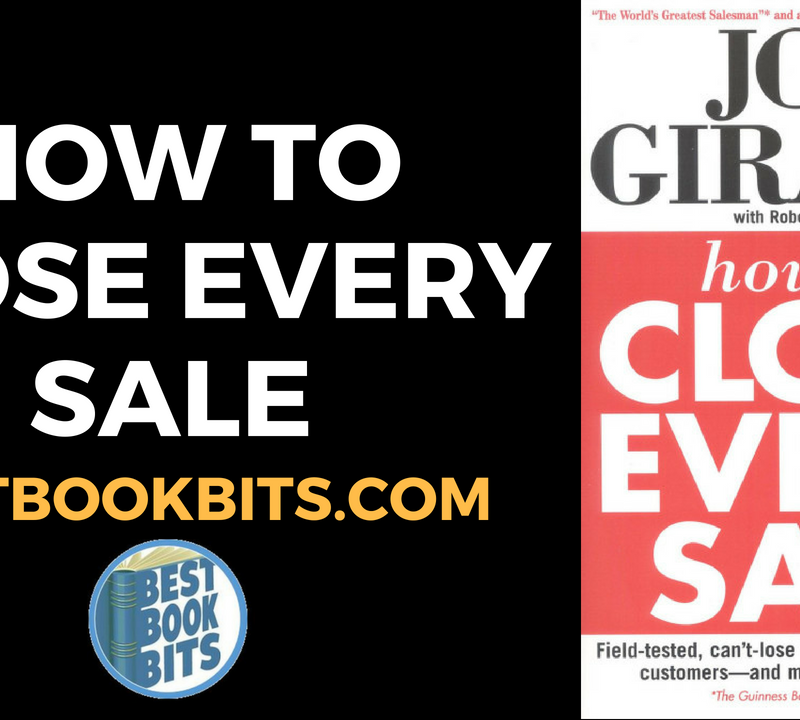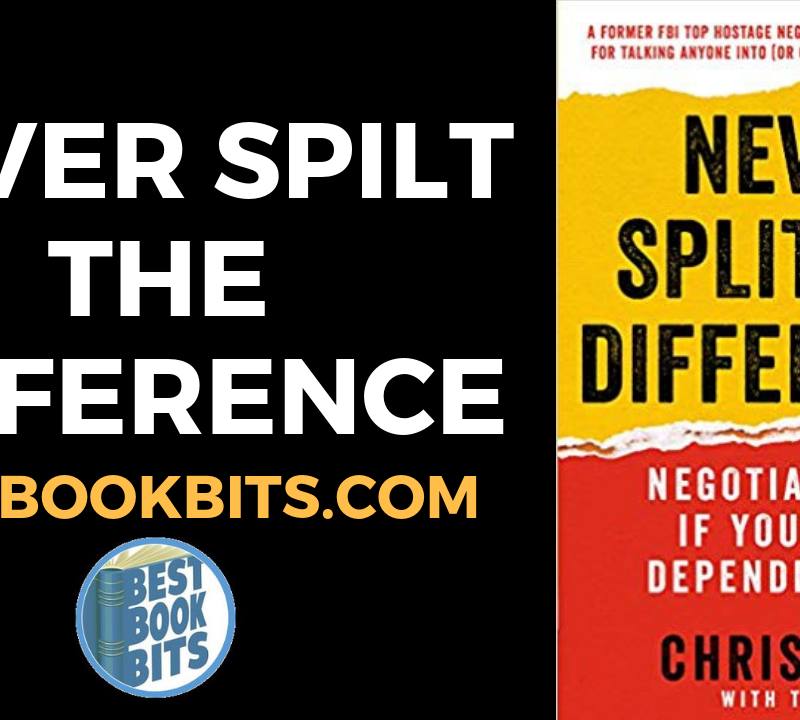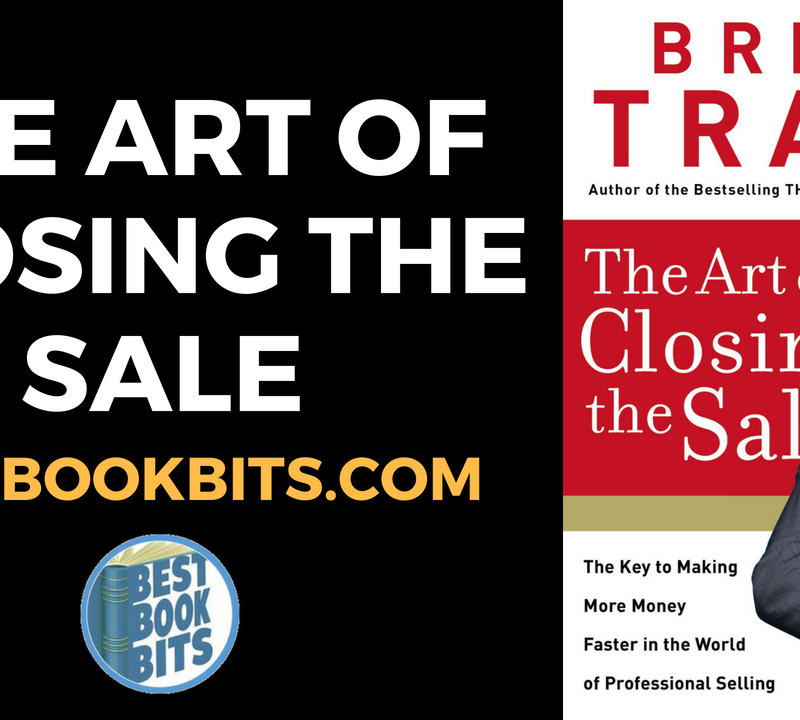★★★Sign up to the Weekly Book Summary Newsletter by CLICKING HERE
★★★Get any FREE audiobook of your choice by CLICKING HERE
- Introduction
- Remember that your prospects are more value-conscious and information-conscious than ever. From the first instant of your contact with a new sales prospect, you must be prepared to demonstrate your patterns of success with previous customers, and you had better be able to discuss, chapter and verse, the specific benefits you’ve delivered.
- Prospect a recognizable expert in your business area.
- You must demonstrate to the prospect that your organization brings a unique and impressive knowledge and skill base to its business relationships.
- You must take an aggressive presentation stance that does not necessarily focus on the prospects own perceived needs.
- You are responsible for helping to define the requirements.
- Ask people what they do, how they do it, when they do it, why they do it that way, and how can you help them do it better. The successful salesperson today is more attuned to the do than to the need.
- Prospecting for tomorrow and maintaining a prospect base.
- Make no mistake. You’re going to have to fight to win and keep customers. Intense competition is a fact of life in today’s market. The time for complacency in sales if there ever was one, is long past.
Habit #1: Communicating the message that it is sound business to trust you
- That of constantly sending and reinforcing the message that it is a good business decision to trust you.
- The successful salesperson makes a good leader because he or she inspires trust. I think that the truly successful salespeople today – and, by the way, this is what I see in world-class sales forces have the personal magnetism and the self-assurance to say to people, Follow me and thereby win long-term, happy customer. That kind of authority only comes with complete, unflinching confidence that you can deliver results for your prospect. If you’re right, your customers trust you-and follow you.
- Relationships are built on trust, and trust is built on evidence of all kinds.
Habit #2: Asking the right questions
- Ask important questions. Ask real questions.
- Never waste the prospect’s time.
- You came here on a business appointment.
- Just out of curiosity, Ms. Allen-how did you get this job?
- Have you ever used any of our widgets before.
- Just out of curiosity what widget are you presently using.
- Tell me something; what do the next six months look like for you in terms of widget use?
Habit #3: Taking the lead
- Prospect, at this stage I’d like to ask a couple of simple questions that will help me find out ways we can help you.
- We don’t live in a perfect world. We live in a world of complex people who have complex thinking patterns.
- You need that information. You need to know where there is still a problem to be worked on. If you don’t know where there’s a problem, you won’t be able to close the sale. And it’s far better to isolate a problem through a consistent system of “sequence updates” (as I like to call them) than to wait until the last minute, ask for the business, and then find out there was something important you should have been paying attention to but weren’t.
Habit #4: Engaging the prospect
- You must identify what is important to any given prospect, then learn how to appeal to those values.
- There is an advantage to beginning an exchange by focusing on your own observations and experiences tactfully, of course. Doing so takes some of the pressure off of your prospect, who will be expecting you to try to “draw him in”
- When the person starts to talk about himself, “lean in” to the conversation. I also put down the pen I’m using to take notes. This serves as a subtle validation that the prospect’s experiences are inherently interesting.
Habit #5: Finding key requirements
- But most successful salespeople I know develop a sense of who the likely customer is-and then put themselves in front of as many of those types of people as possible.
- The salesperson as tactful educator and facilitator-not steamroller.
- Look at each lead as a sales relationship-and remember that relationships take time to develop.
Habit #6: Converting the leads that “fall into your lap”
- Back off and establish some kind of relationship.
- So exchange a few pleasantries; get a feeling for the kind of person you’re talking to.
- Do you mind if I ask what prompted your call.
- Ask to set up an in-person appointment.
- You need to establish a personal bond.
- Don’t assume you’ve got a “sure thing”. Sales is a numbers game, your objective is to turn the odds in your favour in as many different ways, and on as many different occasions, as humanly possible.
Habit #8: Pretending you’re a consultant because you are.
- Treat all your sales work as a consulting assignment.
- The best salespeople are professional problem solvers. If you sell cars, then you should consider yourself in the business of solving transportation problems.
- The dictionary defines “consult” as “to sell advice, information, or guidance from.” To me, this definition encapsulates exactly the relationship between a qualified prospect and a professional salesperson. You as a salesperson are there to advise the prospect as to the ways you can help solve existing problems; to provide all necessary information relative to solving those problems; and to provide the necessary guidance that will result in a harmonious professional association.
Habit #9: Asking for the next appointment while you’re on the first visit.
Habit #10: Taking notes
- Taking notes during your meeting with the prospect can be one of your most powerful sales tools.
- Taking notes puts you in position of authority and control.
Habit #11: Creating a plan with each new prospect
- One of the best ways I know of to combat that “here I go again” sensation (and that’s a danger for even the very best salespeople) is to produce a customized, written plan for your prospect.
- Listening is the first part of the secret, and identifying the mutually accepted solutions is the second part.
- You’re a doctor. It doesn’t matter how many patients you’ve seen before. This one is the only one you’re seeing now.
Habit #12: Asking for referrals
- Referrals are the life blood of a successful career in sales. And yet salespeople are usually terrified to ask for them.
Habit #13: Showing enthusiasm
- Enthusiasm builds bridges.
Habit #14: Giving yourself appropriate credit
- Talk about yourself-but be humble.
- Talk yourself up. Yes. There is a definite risk here. But in my view, it’s a risk worth taking. Try it with the next prospect you see.
Habit #15: Telling the truth (it’s easier to remember)
- I advise you to tell the truth to your client.
- Building bridges. Salespeople are relationship-oriented. They build relationships on trust and personal contact, and they live and die on the strength of those relationships
Habit #16: Selling yourself on yourself
- Be specific with your goals-and your rewards. Perhaps your dream is to own a Lamborghini.
- Yes, you do need a lunch break. No, you shouldn’t work through the noon hour.
- Leave yourself notes. I can do it. Most of things I worry about never happen.
Habit #17: Starting early
- Realize how important attitude is in sales work.
- Time for yourself means making sure you’re at your best when dealing with others.
Habit #18: Reading industry publications (yours and your clients’)
- Your winning edge: information.
Habit #19: Supporting your visit the next day
- Call or write your prospect the day after you visit. The cast majority of salespeople who mean to do this never actually get around to it. I strongly suggest that you build these contacts into your daily schedule.
Habit #20: Giving speeches to business and civic groups
- Public speaking rates as one of the most commonly shared fears human beings have. Yet I’m going to suggest that you take the time to develop your skills as a speaker and get out and share your unparalleled expertise in your field with audiences.
- Give public speaking a try.
Habit #21: Passing along opportunity when appropriate
Habit #22: Taking responsibility for presentations that go haywire
Habit #23: Being honest with yourself about the nature of the firm you work for
Habit #24: Telling everyone you meet who you work for and what you sell
- Current research indicates that a routine you stick with for 21 days will become ingrained, and will become a permanent habit you can incorporate automatically.
Habit #25: Keeping your sense of humour
To buy the book, click the link in the image below to purchase from Amazon.














